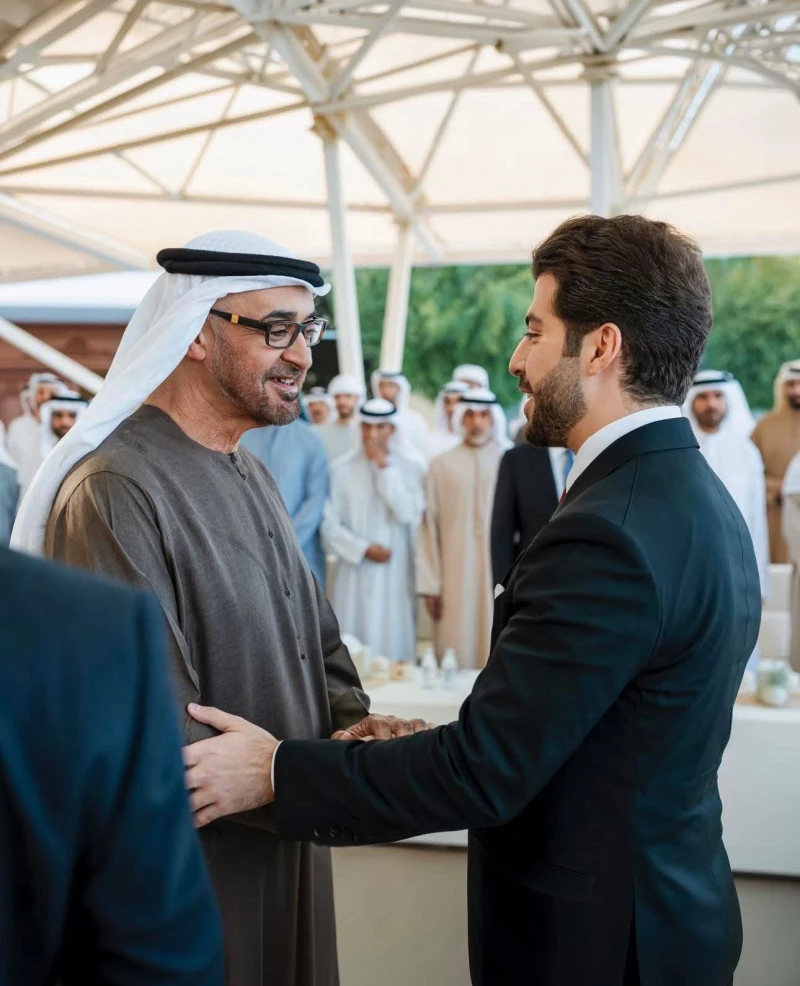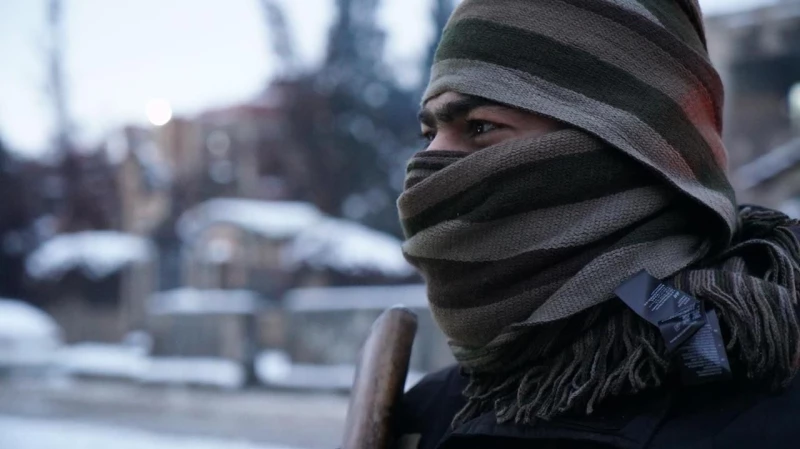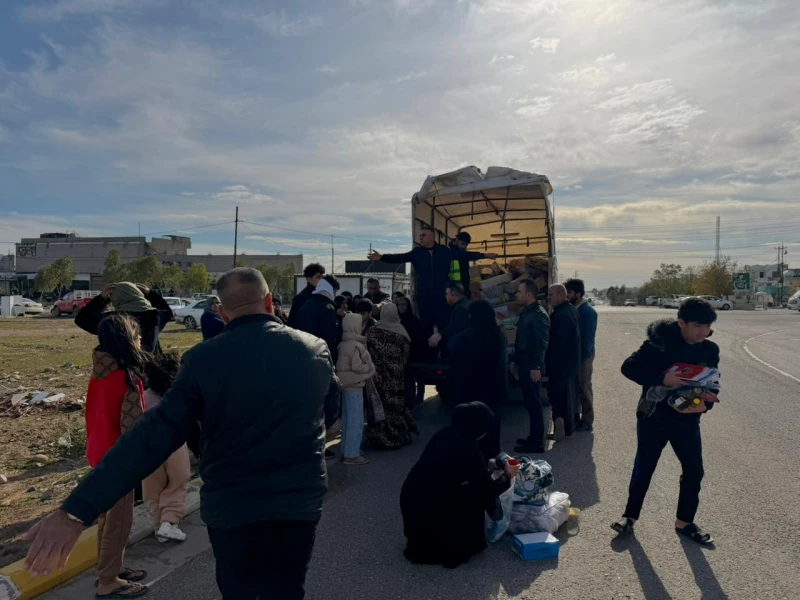DUHOK, Kurdistan Region of Iraq - Followers of the Armenian Orthodox Church in the Kurdistan Region on Saturday celebrated Christmas. Armenian Christmas falls on January 6, and churches across Erbil and Duhok provinces witnessed mass, religious ceremonies, and prayers for peace in the Kurdistan Region, Iraq, and the world.
Around 3000 Armenians live in the Kurdistan Region, and the city of Zakho located north of Duhok province, is considered the main hub for Armenians.
The presence of Armenians in the area goes back over a hundred years, following genocidal campaigns against them by the Ottoman empire in 1915, thousands of Armenians migrated to Iraq.
On Saturday morning, the Virgin Mary Armenian Orthodox Church in Zakho, which is the oldest Armenian church in the Kurdistan Region, witnessed a holy ceremony in which calls for peace echoed.
Decline of festive traditions
Christmas is considered a social occasion during which relatives and friends gather and spend time together. However, according to Armenian citizen Thomas Hanna, these traditions are facing a decline.
Hanna told the New Region that most of them gather and perform their prayers at the church where they meet and congratulate each other, adding that the internet has made it even easier to communicate and celebrate with loved ones abroad, but feast visits locally have declined.
“There are some feast customs and rituals that we keep, such as offering presents to children, distributing sweets, and preparing the feast's favorite dish, which is pacha,” he said.
The head of the Armenian Committee in Zakho, Daoud Hohan Mardirosyan told the New Region on Saturday that the Armenian church and the Armenian Affairs Committee are holding special ceremonies to receive well-wishers during the holiday, which includes the participation of various social, religious, and cultural figures.
“Armenians are an important and vital part of the social fabric in the Kurdistan Region and Iraq, and our future is linked to the future of the Kurdistan Region. Any development in the region will reflect positively on our situation,” he said.
The Armenians of the Kurdistan Region are famous for various professions, including making traditional clothes, blacksmithery, carpentry, and other manual professions.
Currently, most of them work in liberal professions, government jobs, and trade.
The Kurdistan Region Parliament has allocated one quota seat to represent the Armenian community in the Region, and the Duhok provincial council has also allocated a seat for the community to represent them at a governmental level.
The Armenian language is also taught in areas where the community resides, according to Mardirosyan.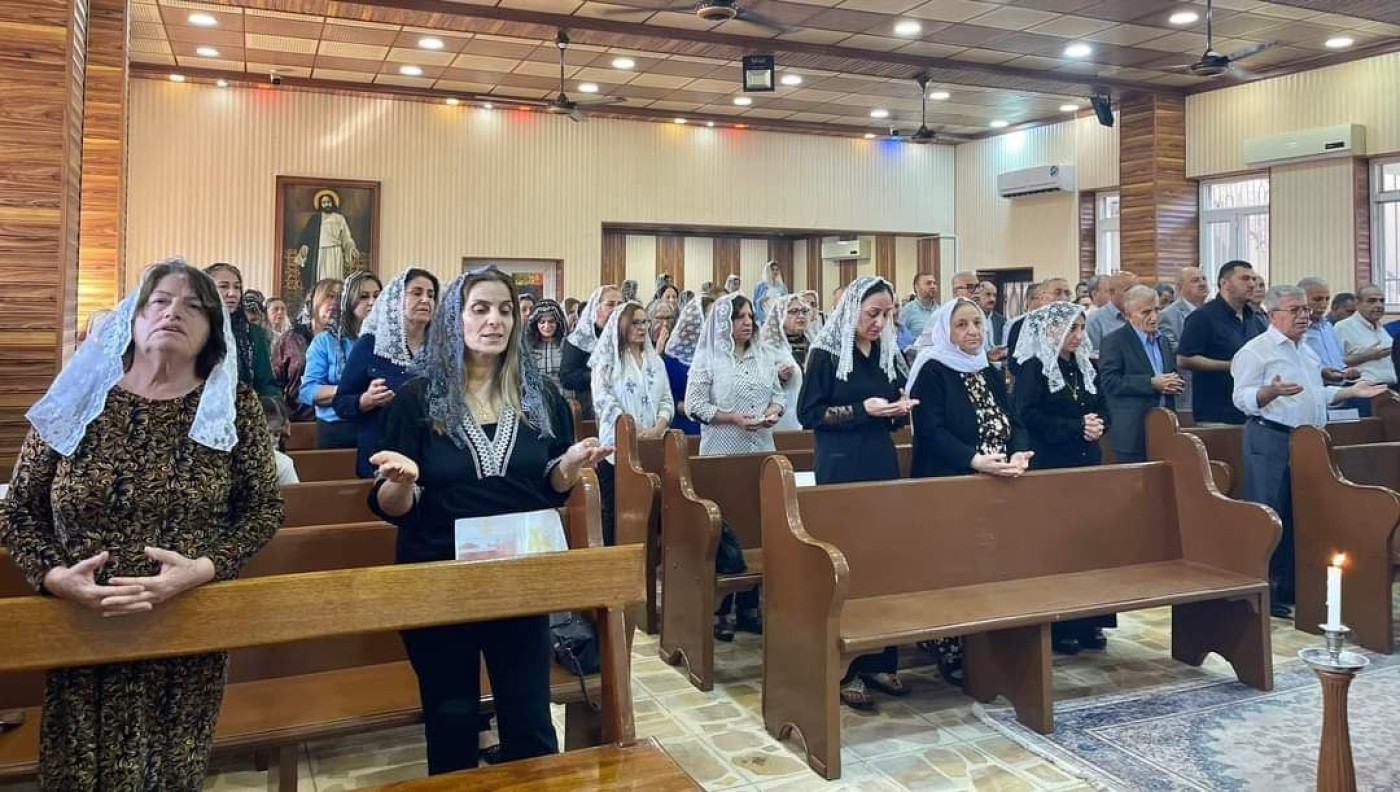
Armenians in Iraq
According to Armenian historian Movsis al-Khourini, the Armenian presence in Iraq is ancient, and they have settled in Iraq since the seventeenth century when the Persians took over Armenia.
At the time, Shah Abbass brought around 12,000 Armenians and settled them in the New Julfa region (Isfahan). Though following his death, the Armenians in Iran were subjected to harassment, so they started migrating to Iraq and India.
Some did not take routes to India and instead settled in Basra, later migrating to Dikranakert, Urfa, Adana, and Izmir.
According to Khourini, the Armenians in Iraq were divided in the beginning.
Those residing in Basra were affiliated with the Diocese of Isfahan, while those in Baghdad were affiliated with the See Apostolate in Vagharshapat, Armenia.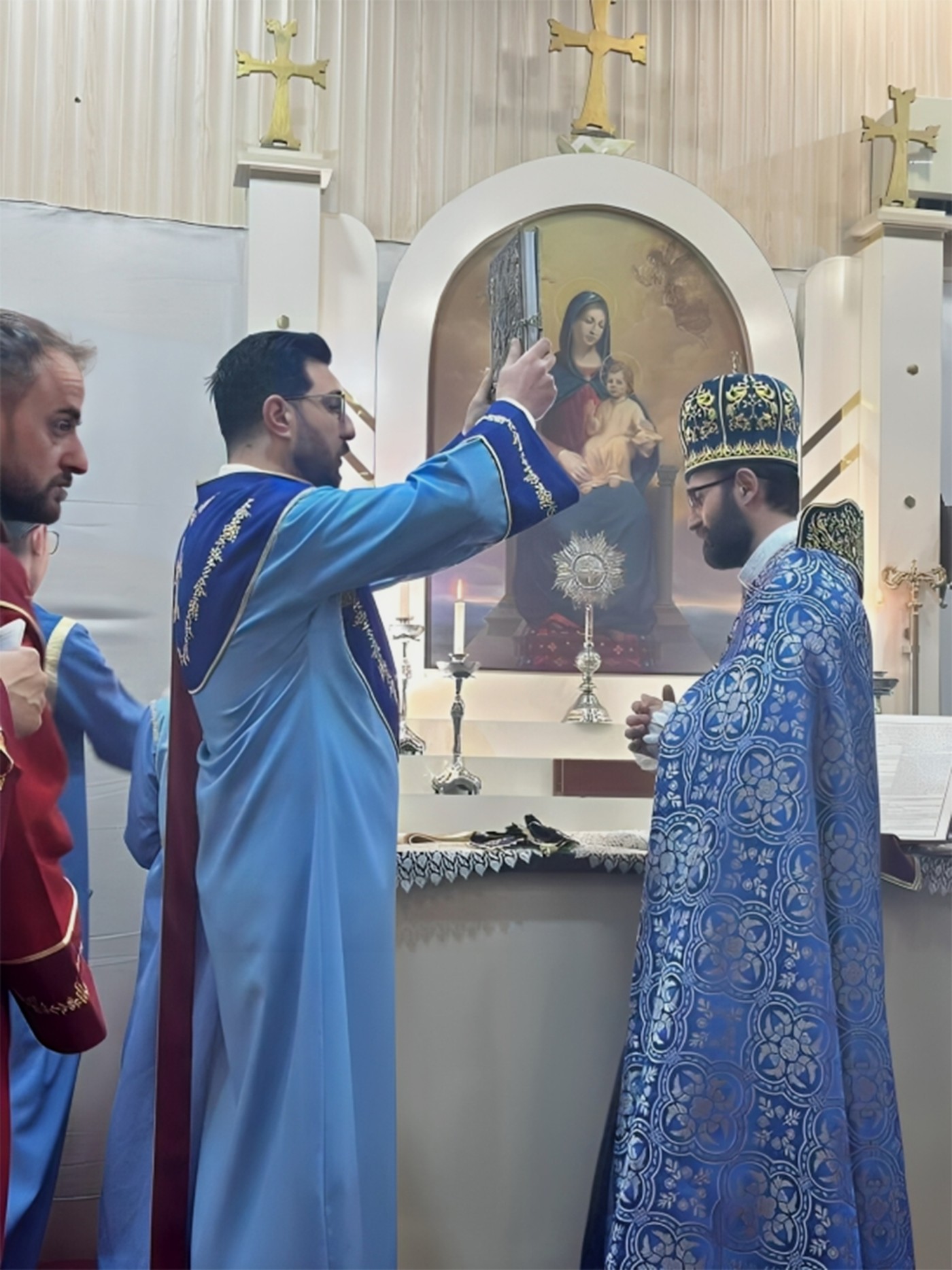
Communication with the motherland and will to relocate
Many Iraqi Armenians seek to strengthen their relations with their motherland Armenia, through visits or residence there and obtaining Armenian citizenship through marrying Armenian women.
Hawkes, a young Armenian who works as a carpenter in Zakho, visited Armenia years ago and married an Armenian woman.
“I always seek to strengthen my relationship with my motherland Armenia, but I will not leave the Kurdistan Region and I want to remain living in my hometown,” he told the New Region.
The Armenians faced the largest mass exodus to Iraq at the beginning of the twenties of the last century after they were exposed to a campaign of genocide by Turkish authorities, which claimed the lives of more than a million people, according to Armenian sources.
Armenians began working in the fields of trade and handicrafts in Iraq, as well as becoming intellectuals, writers, artists, doctors, engineers, and government employees. They contributed effectively to the development of Iraqi society.
Armenian sources indicate that the number of Armenians in Iraq reached around 25,000 people before 2003, but unstable security conditions led to many of them immigrating abroad or residing in the Kurdistan Region.
Longing for Basra
The 65 year old Um Maryam, who is an Armenian woman who got displaced from Basra to Duhok in 2006 told the New Region of her will and longing for life in Basra.
“Our calls during feast prayers are for peace and stability in Iraq and the world,” she told the New Region on Saturday, adding that poor security conditions in Basra at the time forced her to flee.
“I miss beautiful Basra, but I do not want to return to it again after I lost everything I had there,” she said.

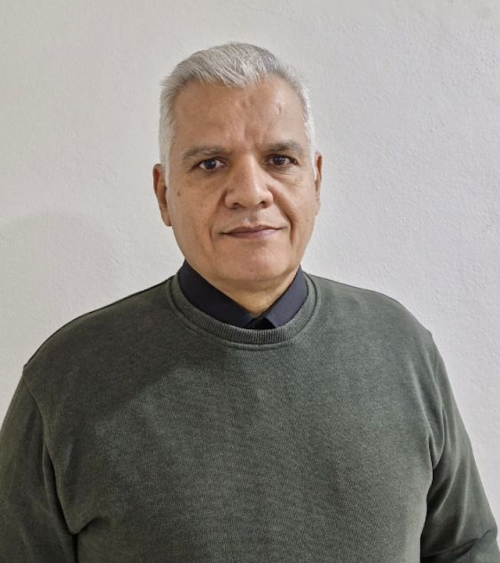
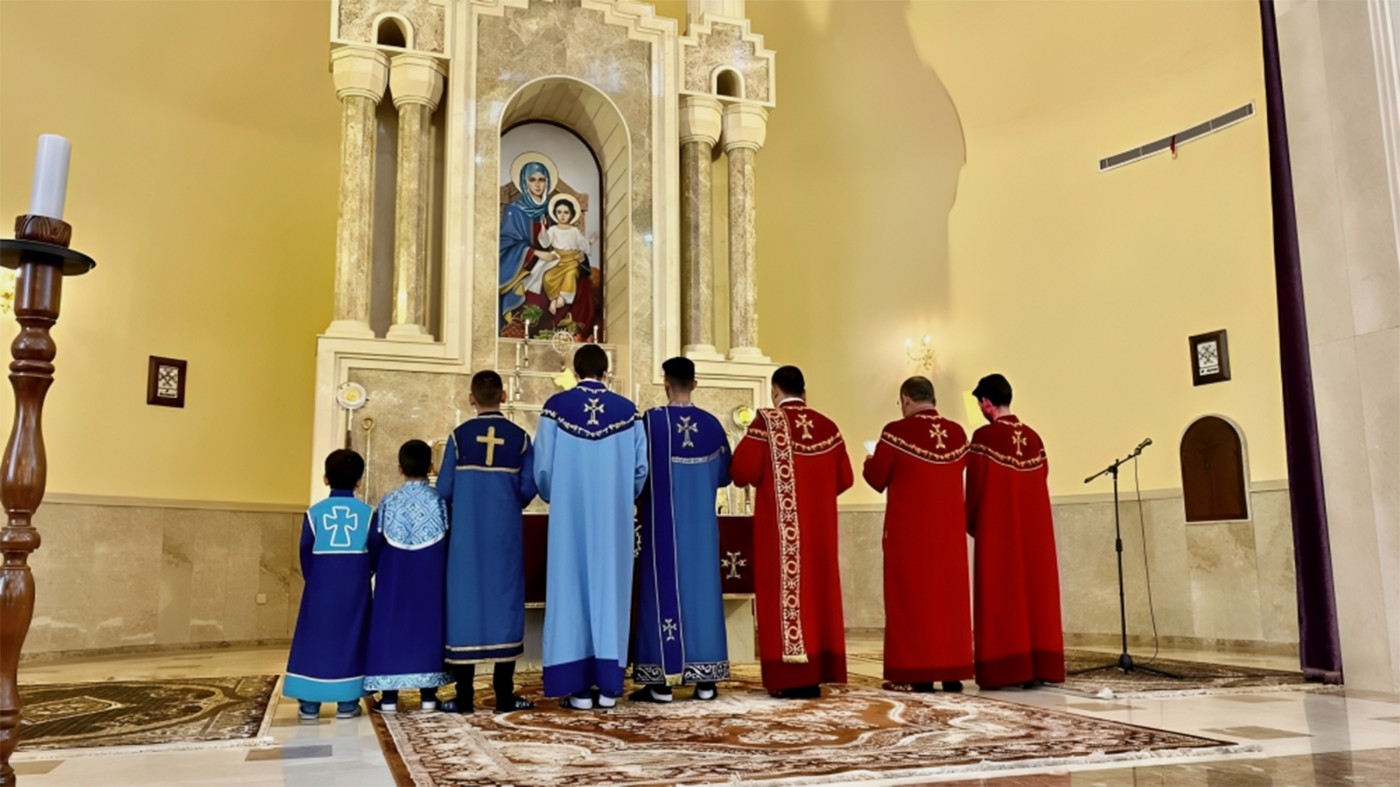
 Facebook
Facebook
 LinkedIn
LinkedIn
 Telegram
Telegram
 X
X
